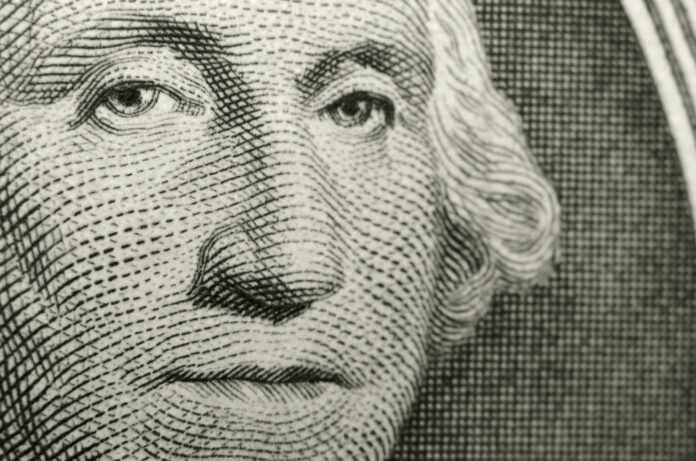Aware of my interest in history, a friend gave me a textbook he had used in college in the 1950s, Arthur S. Link’s American Epoch: A History of the United States since the 1890s.[1] Aha! I thought to myself, now I can read history as it used to be written, without the “politically correct” distortions of the past thirty or so years.
So I started reading. The book is a rich mine of information, especially about politics and political decisions. But as I turned the pages, I began to feel uncomfortable. The first part of the book is about the Progressive Movement (roughly from the 1890s to the 1920s). I began to wonder. Is there bias here?
Link started off pointing out that the Progressive Movement was not a single movement; it had multiple strands. Even so, as I read I felt he was describing a combat between right and wrong, telling a morality tale, if you will.
“To put it simply, from 1865 to 1900 political and economic thinkers were divided roughly in two major groups: on the one hand, persons who attempted to justify unbridled capitalism and the reign of big business, on the other, those dissident voices who attempted emotionally and intellectually to justify the revolt against laissez faire.” [2]
The “dissident voices” were the nascent Progressives. The statement doesn’t exactly give the white hat to the Progressives, but it comes close, and I haven’t found any disparaging remarks about the Progressives in the book, except for one: they didn’t go far enough. In contrast, those in charge before the Progressives arrived are described as corrupt and all presidents after Abraham Lincoln and before Theodore Roosevelt as second-rate.
One strand of the Progressive Movement was the social justice movement, which supported legislation against child labor, a minimum wage for women as well as a limit on women’s hours, and workers’ compensation for industrial accidents. These guys, surely, were doing good as they saw it. But even more:
“[T]he professional social workers, students of the labor problem, and leaders of advanced social opinion . . . emerged as a redemptive element in the American democracy, and banded together in crusades to transform an individualistic and competitive society into something approaching the welfare state” [My italics].[3]
And, “Within less than a decade . . . the progressive ferment had wrought an almost miraculous change in the American political scene” [My italics].[4]
Was the “competitive society” at the turn of the century mired in sin? That is, was it really that bad? Link himself wrote, ”The years from 1897 to 1914 were a golden period of American development. They were usually prosperous years . . . a comfortable, hopeful age.”[5] Those were the years when Progressives were trying to make fundamental changes.
Link explained that the Progressives all agreed that the federal government should be more active. They just couldn’t decide whether the government should merely “destroy the system of protection for business,” or engage in “directly regulating business activities.”[6]
Whichever path, it was not going to happen easily. They had a powerful enemy, the courts. American jurists had been “reared on the Anglo-American legal tradition that often valued liberty above justice.”[7]
Even the Constitution was against the Progressives: They were “bound by a written Constitution capable of being construed as the bulwark of a laissez-faire policy”—not to mention having a “conservative Supreme Court,” which kept it that way.[8] “On the whole, the conservative philosophy prevailed . . . chiefly because Chief Justice Edward D. White and a majority of the old conservative justices had refused either to die or resign and allow Wilson to appoint a progressive majority.” [9] Refused to die?
I hope I’ve indicated why I felt Link’s scale was weighted toward the Progressives,
I decided to look at another source, the new textbook by Wilfred McClay, Land of Hope.[10] It’s considered a “conservative” history (a counter to Howard Zinn’s leftwing A People’s History of the United States. It turned out to be more analytical than Link on the Progressives.
McClay agrees with Link that the Progressives were basically a middle-class revolt and that they were divided on some issues, so it is not always easy to pin them down as a single movement. But even where Progressives agreed with one another, says McClay, they represented a “paradox.” “[O]n the one hand, they took a very skeptical view of democratic political institutions and preferred the rule of professionals . . . . On the other hand, they had an expansive faith in the people.”[11]
Unmentioned in Link’s book as far as I can tell, and it’s not in the index), most Progressives favored eugenics, the so-called science of improving people through selection from the gene pool, in some cases through sterilization. McClay points this out.
A related issue was the Progressives’ feeling (shared by others, true) that the new, poor Europeans coming through Ellis Island were genetically inferior to the Anglo-Saxons that had settled in America. Thus they proposed restrictions on immigration. They also favored racial segregation; Woodrow Wilson famously attempted to segregate the federal workforce.
To me, those drawbacks are enough to require some hesitation. The Progressives may have done some good, but they were not an unmixed blessing. They just seem that way—in a history textbook published in 1955.
Originally posted on Jane Takes on History. Republished with permission.












[…] environmental activists are so hostile to capitalism that they end up killing animals they want to […]